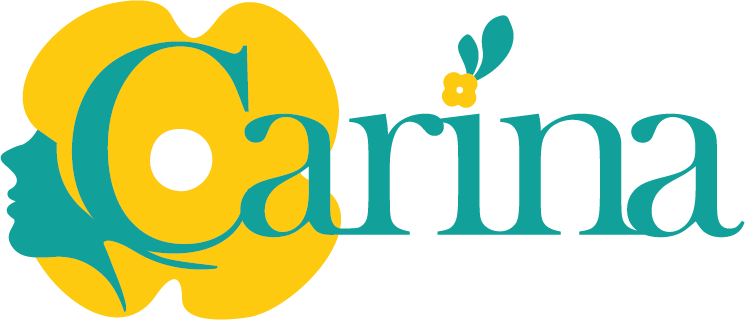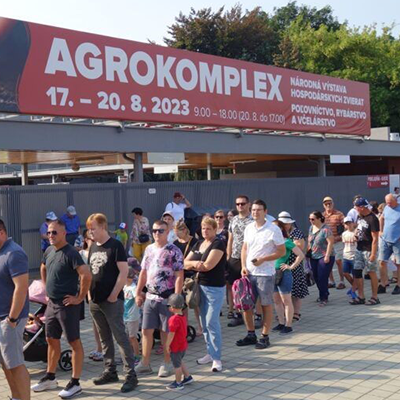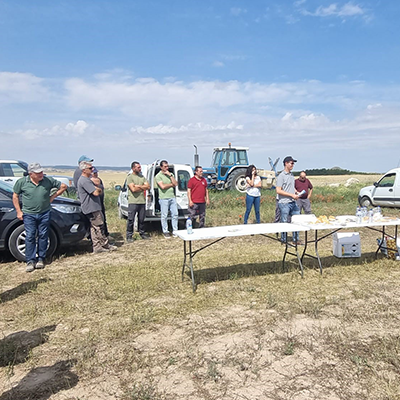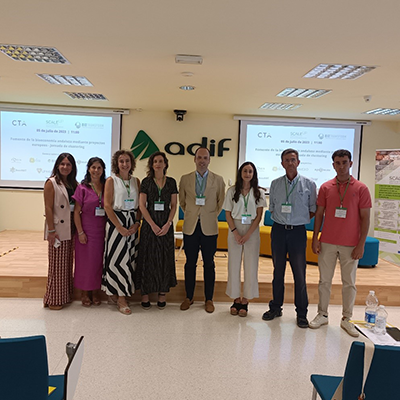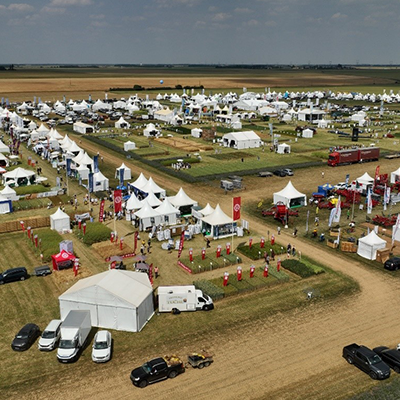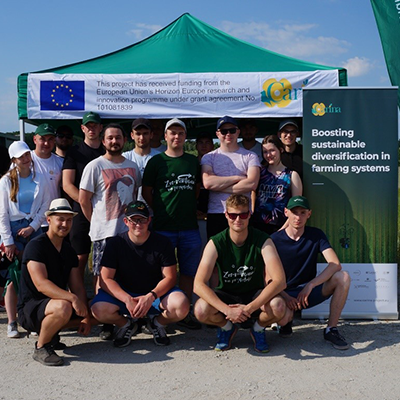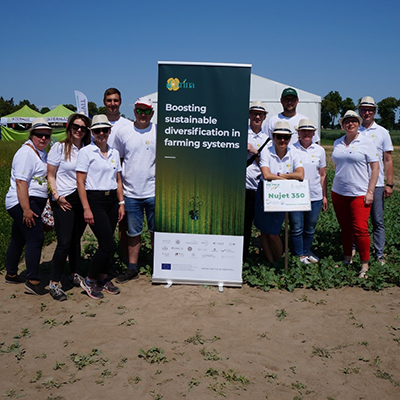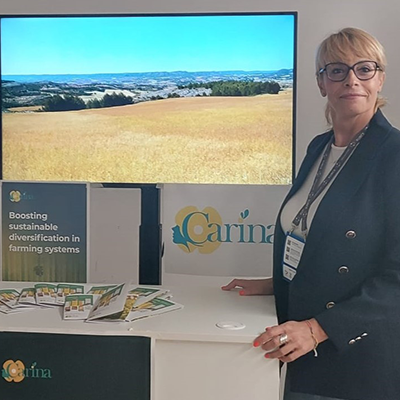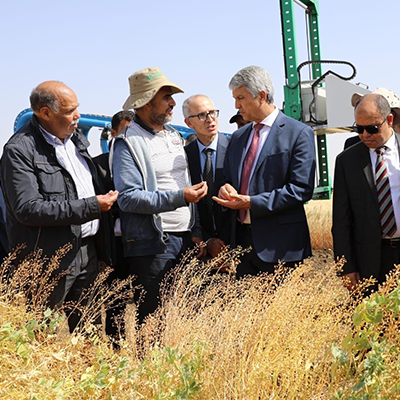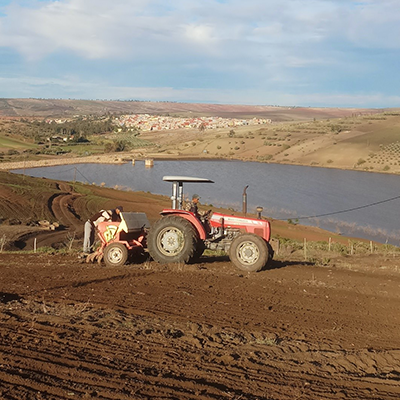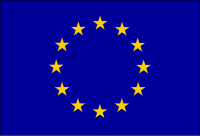On 17th of August 2023, PEDAL Consulting s.r.o. presented Carina at workshop titled ‘Sharing our Experiences – Transferring Insights from International Projects to Agricultural Policymaking.’ This workshop was part of a 4-day event, 48th International Agricultural and Food Exhibition AGROKOMPLEX 2023 in Nitra, Slovakia.
Camelina as an Alternative to Combat Drought and Enhance Sustainability in Agriculture
In the face of climate change and its devastating impacts, finding sustainable and resilient agricultural practices has become more critical than ever. One such innovation that is gaining traction as an alternative to combat drought and promote sustainable farming practices is camelina. On 21 June, Cooperativas Agro-alimentarias de España (Spanish Co-ops) and Camelina Company (CCE) organized a field visit for members of the Alcamancha cooperative to learn about the potential of the camelina crop and its benefits for the agricultural sector.
Carina at the conference ‘Promotion of the Andalusian bioeconomy through European projects’
On July 5th, the Technological Corporation of Andalusia (CTA) held a conference titled ‘Promotion of the Andalusian bioeconomy through European projects’ at its newly established headquarters in Malaga Tech Park in Spain. The event served as a platform to bring together various initiatives funded by European resources that are dedicated to the advancement of bioeconomy in Andalusia. Supported by the European projects SCALE-UP and BIOTRANSFORM, the conference showcased 18 initiatives focused on biomass utilization and sustainable development within the region.
ARVALIS Showcases Carina at Les Culturales Field Event
ARVALIS, recently organized the Les Culturales field show, a two-day event that attracted more than 15,000 visitors. The event primarily targeted farmers, agricultural advisors, students, researchers, and economic operators in the arable crops sector.
Winter Camelina Field Workshop Highlights Benefits of Cultivating Camelina and Carinata
Lubosz, June 7, 2023 – A field workshop focused on the Carina project took place on June 7th in Lubosz, bringing together 23 farmers and landowners. The event aimed to showcase the growth and development of winter camelina, spring camelina, and carinata under field conditions. Led by the scientific staff (from University of Poznan) of the Carina project, the workshop shed light on crucial aspects of agrotechnical treatments involved in cultivating these plants. Local farmers and students had the opportunity to learn about the current and future techniques while discussing the possibilities of growing crops on marginal land and as intercropping options.
Carina Project Team from Poznań University of Life Sciences Presents Crop Varieties at Polish National Field Days
Sielinko, Poland – The Carina project team from the Poznań University of Life Sciences (PULS) made a significant impact at the Polish National Field Days held from June 3 to 6, 2023. The team actively participated in the event, which was organized by the Agricultural Advisory Center in Poznań, and successfully spread awareness about the Carina project to a diverse audience.
CARINA Project Makes Waves at the European Biomass Conference & Exhibition
[Bologna, Italy] – The CARINA project, has garnered significant attention at the European Biomass
Conference & Exhibition (EUBCE). Presented by Federica Zanetti, a distinguished Senior Assistant
Professor in Agronomy and Field Crops at the University of Bologna, CARINA has captivated attendees
with its research and advancements.
The Agriculture Minister of the Kingdom of Morocco recently visited camelina trials at ICARDA and INRA Marchouch Research Station in Morocco.
On April 11, 2023, a delegation led by His Excellency, Mr Mohammed Sadiki, Minister of Agriculture, Water and Forests of Morocco, visited the Marchouch Experimental station of INRA and ICARDA, Morocco. The delegation included the Governor of the Province of Khémisset, Director of INRA-Morocco, professionals, elected officials, and a large group of Ministry officials.
Winter Camelina – field workshop in Dłoń
A Winter Camelina Field Workshop was held on the 10th of March at the Agriculture Experimental Station Dłoń, located in Poland by our partner PULS. The main objective of the workshop was to present the winter camelina in field conditions, focusing on crop growth and productivity. The scientific staff of the Carina project led discussions on the most important issues related to agrotechnical treatments in camelina cultivation to local farmers. Talks on performed and future agrotechnical treatments were found to be very interesting for workshop participants.
On-farm demonstration trial of camelina in the Rammani region of Morocco
On-farm demonstration trial of camelina was successfully planted in the Rammani region of Morocco on 13-Dec-2022 using locally available seeders. This marks a significant step forward for farmers in the region who are looking to diversify their crops and improve yields
